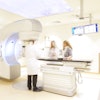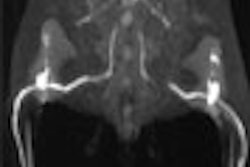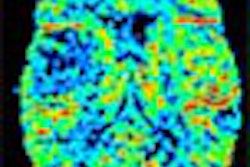Five years after radiation treatment, prostate-specific antigen (PSA) levels in the blood of cancer patients can predict disease-free survival, the American Society of Therapeutic Radiology and Oncology (ASTRO) reported today.
The study examined 328 prostate cancer patients who were biochemically disease-free five years after undergoing external beam radiation therapy to the prostate, according to lead investigator Dr. Anthony Zietman and colleagues from Massachusetts General Hospital in Boston. The study was published in the October edition of the International Journal of Radiation Oncology, Biology and Physics(October 2002, Vol. 54:2, pp. 420-426).
Five years after treatment, the patients were divided into four groups based on their PSA levels. Progression-free survival was 87%, 79% and 67% respectively at 8, 10 and 13 years after treatment, ASTRO said.
Ten years after treatment, survival was 92%, 71% 78% and 56% for PSA levels of 0.5 or lower, 0.5 to 1.0, 1.0 to 2.0, and 2.0 to 4.0. ng/mL, respectively.
When PSA levels remain low five years after external beam radiation therapy, the great majority of patients will be biochemically disease-free at 10 years after treatment, the group concluded.
By AuntMinnie.com staff writersSeptember 24, 2002
Related Reading
Surgery, radiotherapy equivalent for localized prostate cancer, August 30, 2002
Younger prostate cancer patients at risk for treatment failure with radiotherapy, August 8, 2002
Copyright © 2002 AuntMinnie.com



















